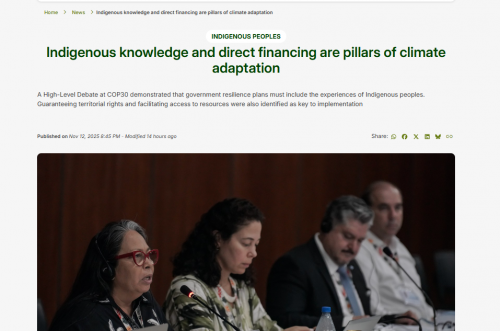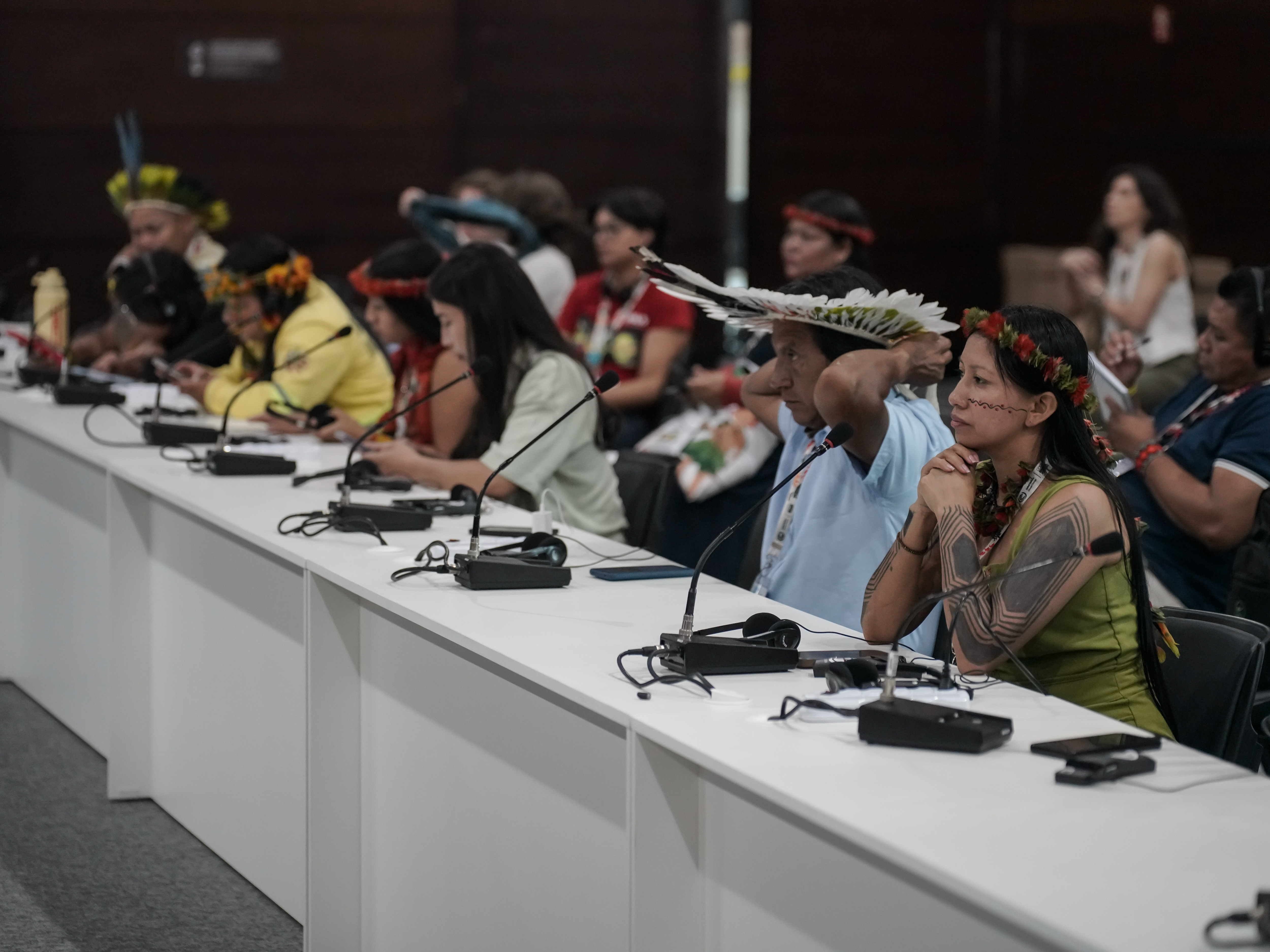
https://cop30.br/en/news-about-cop30/indigenous-knowledge-and-direct-fin...
By Laura Marques/COP30
The role of Indigenous peoples in the development of National Adaptation Plans (NAPS)—together with the protection of territories and the direct flow of climate finance to Indigenous communities—is considered essential to addressing climate change. These topics were discussed during the High-Level/Ministerial Event “Indigenous Adaptation”, held on Wednesday, November 12, at COP30.
According to the session host and COP30 Special Envoy Ms. Sineia do Vale, Indigenous ways of life and knowledge are central to achieving the Paris Agreement and other climate goals. “Indigenous peoples have been doing millennia-old work in their territories, bringing solutions to climate change. It is important that they can continue living their way of life,” she stressed.
Mr. Carlos Ruiz-Garvia, representative of the Adaptation Committee of the UN Framework Convention on Climate Change (UNFCCC) Secretariat, echoed the host’s remarks and recalled that several multilateral agreements recognize the role of Indigenous peoples in climate action—including the Paris Agreement, the Convention on Biological Diversity, and the Global Goal on Adaptation established at COP28.
Financing
Participants agreed that ensuring the direct transfer of resources to Indigenous-led initiatives is a top priority for preserving their ways of life, which are vital to the climate.

The Green Climate Fund (GCF)—the world’s main climate finance mechanism—is also working to ensure that Indigenous peoples have direct access to funding for adaptation and mitigation.
“Our goal is also to ensure that Indigenous peoples benefit from climate finance — not merely to prevent harm to them,” stressed Mr. Artur Lacerda, Director of Governance Affairs and Secretary to the GCF Board.
In addition, Ms. Lívia Kraemer, representative of the Norwegian International Climate and Forest Initiative (NICFI), stated that Norway recommends that countries design climate finance policies with the participation of Indigenous representatives.
Ms. Kraemer highlighted the Tropical Forests Forever Facility (TFFF) as an exemplary mechanism. The European country announced a major contribution of USD 3 billion to the fund—one of the largest climate funds in the world.
Land rights
The protection of Indigenous territories was also addressed during the event. According to Dr. David Kaimowitz, Coordinator for the Amazon Basin at the International Land and Forest Tenure Facility, securing land rights is an essential condition for achieving climate goals.
The expert authored a UN Food and Agriculture Organization (FAO) study showing that Indigenous peoples and traditional communities are the best guardians of forests.
Good practices
On Friday, November 14—at COP30—an adaptation plan resulting from Indigenous-led practices in the state of Roraima will be launched. Ms. Sineia do Vale is leading the initiative. She also serves as Co-Chair of the International Indigenous Peoples Forum on Climate Change (IIPFCC) and as Coordinator of the Department of Territorial, Environmental, and Climate Change Management at the Indigenous Council of Roraima (CIR).
"Indigenous peoples offer natural indicators that demonstrate the impact of climate change on the cultural and social lives of communities," stated Ms. Sineia.
The document is one of the few Indigenous adaptation plans in the world and the third in Brazil. It compiles knowledge such as identifying seed varieties more resistant to seasonal changes and the relationship between water temperature and the presence or absence of native fish.
English version: Trad. Bárbara Menezes.
Proofreading by Enrique Villamil.









